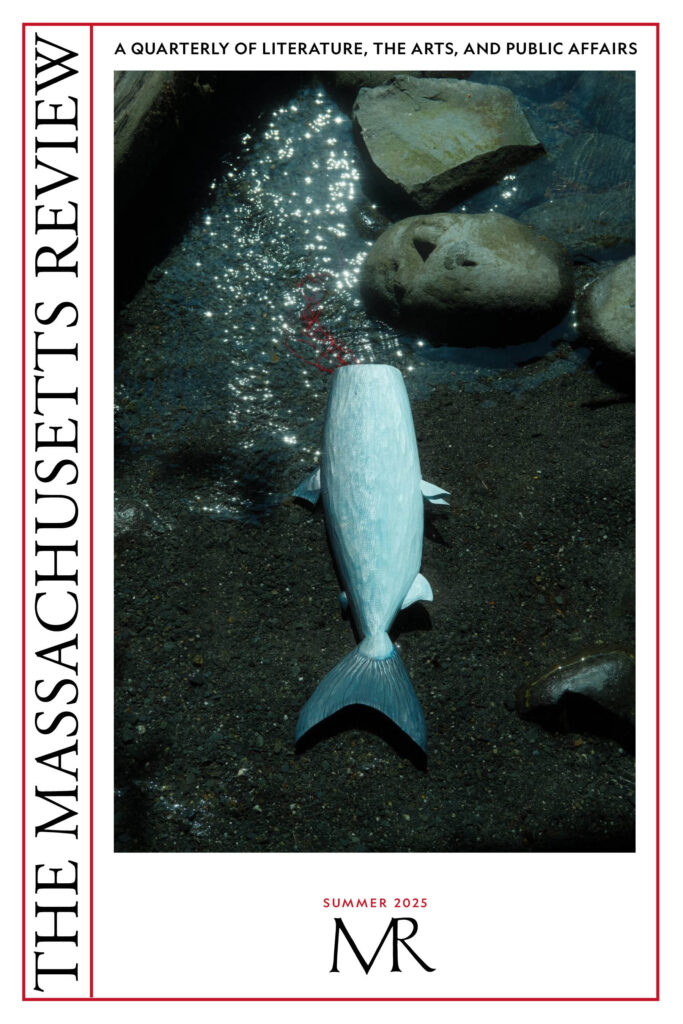Summer Issue Has Arrived!

FROM DARK HUMOR about suicide prevention and biased convictions to uncanny animal poems about beetles, birds, crabs, and jellyfish, summer 2025 swings between the real and the surreal, the eerie and the playful, the alive and the dead. janan alexandra’s opening poem, “[tell me what you know about dismemberment],” mourns the slaughter of a palm tree, registering genocide, ecocide, and the brutal removal of an instrument of breath and comfort outside the speaker’s bedroom window. J. Malcolm Garcia offers a moving portrait of Ukrainian refugees in San Diego, weaving together the stories, traumas, and hopes of a people congregated one Sunday afternoon in the city’s Balboa Park. Poems in translation include one by Mimi Hachikai, translated from Japanese; two by Ye Hui, translated from Chinese; and three by Kim Hyesoon, translated from Korean. Carvings by Erin Ggaadimits Ivalu Gingrich ground the issue, counterbalancing the airy meditations and lines of flight of many other pieces. Prose by Katie Brewer Ball and Joseph Lezza hum with humor, sex, playfulness, and the textures of specific times and places, while a powerful personal testimony by Allen M. Price, “The Rape Closet,” reminds us that queer community can be a site not just of joy and belonging but also violence and abuse. Our public affairs editor, Shailja Patel, had this to say about Price’s essay: “It rings loud and clear as freedom writing.”
Last week, I tore through Dennis James Sweeney’s How to Submit: Getting Your Writing Published with Literary Magazines (New World
Library, 2025), a how-to guide that doubles as a love letter to the dynamic world of literary magazines and small-press publishing. Here’s one quote I’m holding on to in a moment where so much feels like it’s in freefall, a reminder of what literary magazines make possible: “Even a single issue of a literary magazine can be wonderfully varied. Unpublished writers are featured alongside writers with multiple books. Experimental writing appears beside traditional work. Contributors are old and young, published by small and large presses. Literary magazines create space for conversations between writers that might not otherwise find themselves in the same room.” This is a critical moment for magazines like ours. At the time of this writing, the Trump administration has cut over 1,200 grants awarded by the National Endowment for the Humanities while placing 80 percent of its staff on leave; it has targeted pro-Palestinian and Muslim students for detention and deportation; it has made wildly draconian funding cuts to American universities; and it has waged a dizzying number of other assaults on constitutionally guaranteed rights to freedom of speech, protest, and expression. In response to new NEA guidelines that grants cannot be used to fund DEI programs or promote “gender ideology,” the Massachusetts Review has taken the Bartleby position. We won’t be applying, and we won’t be cowed.
Britt Rusert
for the editors








